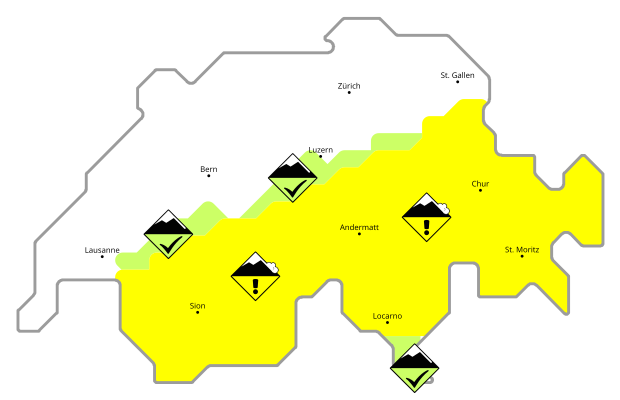Collective financing of renewable energy projects in Switzerland and Germany
Irmi Seidl
2015 - 2033
Cooperation- Agentur für Erneuerbare Energien und Energieeffizienz Aee
- Academy for spatial research and planning
- Climate Alliance Germany
- Competence Center for Research in Energy, Society and Transition (CREST)
- Carl von Ossietzky University of Oldenburg, Germany
- Institute of Finance and Accounting, Leuphana University Lüneburg
- Swissolar
Comparative analysis and implications for energy transition policies
The transition to renewable energies (RE) is a costly endeavor and requires large amounts of capital. This research project investigates organizations that draw on collective financing of RE, in particular we will focus the formation of these organizations and the way collective financing is realized and organized.
Collective financing of RE projects contributes to financing the energy and broadens the capital base. Besides, it has additional benefits, such as the participation of citizens and municipalities in the management of RE projects, enhancement of local identification and generation of incomes and revenues for local economies. This research project focusses on organizatios that draw on collective financing, i.e. cooperatives and associations.
Topics and Goals
In order to provide answers to the question how collective financing can contribute to the energy transition, we will investigate (1) existing business models, financing strategies, and their dependence on the existing legal and institutional framework, (2) involved actors, their relationships and collaborations, (3) the impact of collective financing on the energy transition (RE sources, locational patterns, local dimension), (4) the major success factors and barriers, and (5) developments to be expected and how they can be managed and (positively) influenced by policy makers with the aim to advance the energy transition.
This will be achieved by conducting a comparative analysis of the development of collective financing of RE projects in Switzerland and Germany. Our research focusses on collective forms of financing electricity and heat production from any kind of RE source (except (pumped) storage power station) as well as on further RE-related activities such as transport (grids), trade, distribution and services (contracting, consulting etc.).
Modules
The research project consists of five modules:
- Analysis of legal and political conditions for collective financing of RE in Switzerland and Germany
- Survey of cooperatives and incorporated associations financing RE in Switzerland and Germany
- In-depth case studies of the identified clusters in Switzerland and Germany
- Future trends of collective financing of RE
- Lessons for energy transition policies
Methods
Methods to be used consist of literature review and analysis, a survey questionnaire, cluster analysis, in-depth case studies, interviews and workshops.
Publications
- Ebers Broughel, A., Stauch, A., Schmid, B., Vuichard, P. (2019): Consumer (co-)ownership in renewables in Switzerland. In: Lowitzsch, J. (Ed.), 2019: Energy transition. Financing consumer co-ownership in renewables. Cham, Palgrave Macmillan. 451-476. doi: 10.1007/978-3-319-93518-8_20
- Klagge, B., Meister, T. (2018): Energy cooperatives in
Germany – an example of successful alternative economies?
Local Environment. DOI: 10.1080/13549839.2018.1436045 - Klagge, B., Schmole, H. (2018): Energiegenossenschaften:
eine wirtschaftsgeographische Perspektive. In:
Holstenkamp, L., Radtke, J. (eds.): Handbuch Energiewende
und Partizipation. Wiesbaden: Springer VS, 303-315. DOI:
10.1007/978-3-658-09416-4_18 - Klagge, B., Meister, T. (2018):
Energiegenossenschaften aus einer
Postwachstums-Perspektive. ARL-Nachrichten. [pdf] - Reist, V. (2018): Community Energy - Eine Begriffsanalyse und Untersuchung der Aktivitäten in den Kantonen Aargau und Thurgau. Masterarbeit, ETH Zürich. [pdf]
- Rivas, J., Schmid, B., Seidl, I. (2018): Energiegenossenschaften in der Schweiz: Ergebnisse einer
Befragung. WSL Ber. 71. URL: https://www.wsl.ch/de/publikationen/energiegenossenschaften-in-der-schweiz-ergebnisse-einer-befragung.html - Schirmer, C. (2018): Unternehmerische Organisationsformen von Windenergieanlagen und deren soziale Akzeptanz - Eine Analyse anhand der Fallbeispiele Gütsch und Le Peuchapatte. Masterarbeit. Universität Basel. [pdf]
- Schmid, B.; Seidl, I., 2018: Zivilgesellschaftliches Engagement und Rahmenbedingungen für erneuerbare Energie in der Schweiz. In: Holstenkamp, L.; Radtke, J. (eds.): Handbuch Energiewende und Partizipation. Wiesbaden, Springer VS, 1093-1106. DOI: 10.1007/978-3-658-09416-4_64
- Klagge, B., Schmole, H., Seidl, I., Schön, S. (2016):
Zukunft der deutschen Energiegenossenschaften:
Herausforderungen und Chancen aus einer
Innovationsperspektive. Raumforschung und Raumordnung
74(3), 243-258. DOI: 10.1007/s13147-016-0398-3 - Salm, S.; Schmid, B., 2016: Finanzierung von erneuerbaren Energien über Bürgerbeteiligungsmodelle. In: AEE Suisse (Hrsg.): Finanzwirtschaft und Energiezukunft - Chancen intelligent nutzen. 16-19.
Workshops
- Expert workshop (November 2015) with 20 academics and practitioners on the issue of "Collective Financing of Renewables in Switzerland - Today and Tomorrow". Summary report (in German).
- Final workshop (February 2019) with 20 academics and practitioners on the issue of "Energy Cooperatives in Switzerland - State of Affairs and Perspectives". Documents and results (in German)
